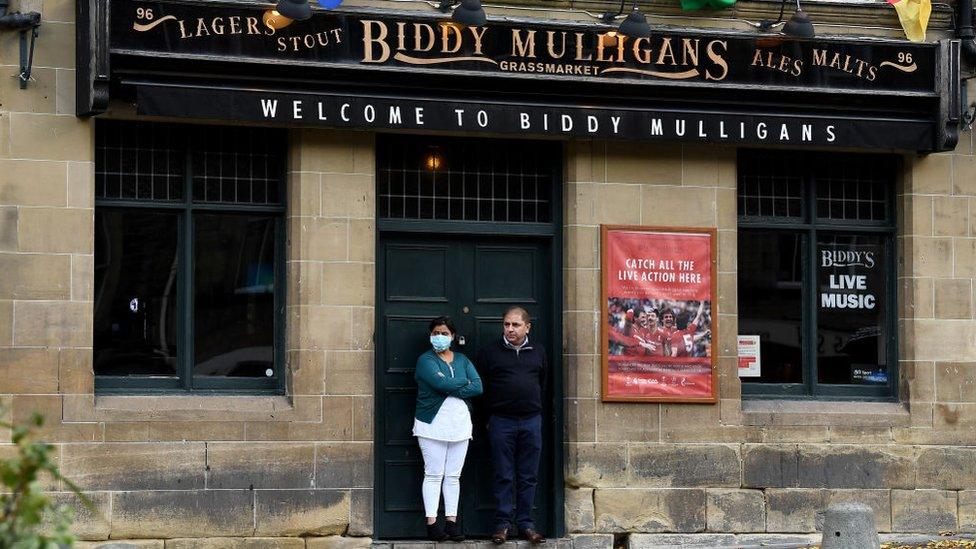Covid in Scotland: Travel sick
- Published
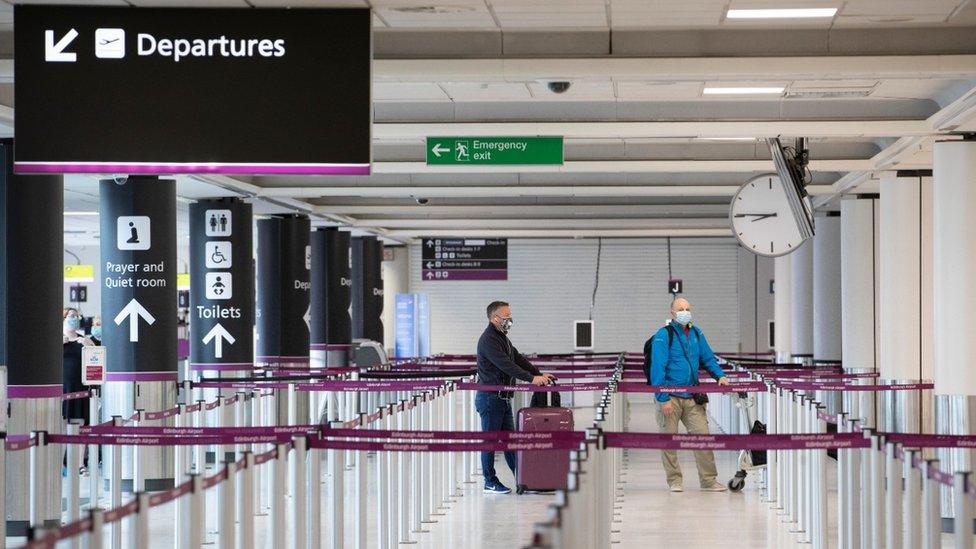
Passengers at an eerily quiet Edinburgh Airport
This may not be the travel season, but it is a time when the industry is busy - desperately looking for help.
Government restrictions have knocked confidence, even before they were stepped up, and bookings are being postponed.
Worldwide, the industry is looking to a 'new normal' as 'neither victim nor villain', with less business travel, but remote workers travelling and living away from home for longer periods of each year.
This isn't the usual season to be thinking of travel. It's more often the time to be planning for Christmas and New Year.
But as that isn't likely to resemble the usual festivities, and is even less likely to feature a holiday, the travel industry sees an opportunity to draw attention back to its plight.
The Scottish Tourism Alliance secured a virtual 45 minutes with the first minister last week, urging her to move faster on airport testing and highlighting the plight of businesses which may be able to furlough workers but are still losing vast sums in fixed costs.
This Monday, the Scottish Chambers of Commerce weighed in, with a wish list which also featured airport testing and help with those overheads.
It also wanted more flexibility on traveller quarantine, and a further review of Air Passenger Duty to help spark the aviation aero-engine back into life.
You may recall the Scottish government had planned to cut it in half, and then abandoned that idea on environmental grounds. Covid-19, of course, has done a lot more for emission reductions than any government aviation policy.
There's also a call for more collaboration with the UK government, to establish an "international standard" for self-isolation, testing and travel corridors.
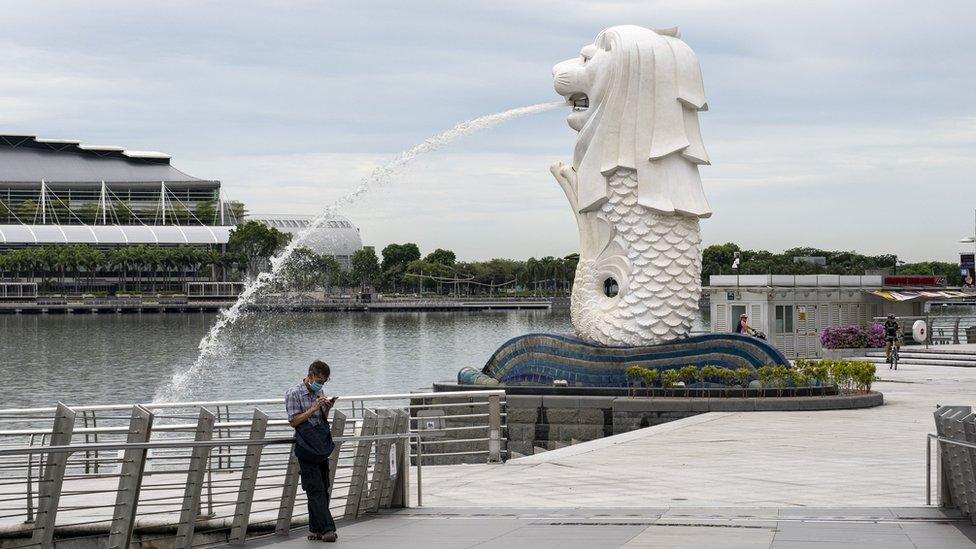
A lone man by the famous Merlion statue in Singapore
Singapore is held up as one example of a country that has put in place such a set of protocols, for testing travellers, contact tracing, and an accreditation system for infection control in hotels and other traveller venues.
The industry - inbound, outbound and staycationing - has been hit once more by lockdowns for most the UK. It is still possible to fly to the Canaries from a Scottish airport, but as even crossing council boundaries is against guidelines, foreign travel is even more discouraged. And there's no guarantee that you can avoid a quarantine requirement on your return.
Domestic tourism in Scotland is hard hit by the rules against moving between council areas, and an even firmer instruction not to travel between high risk and lower risk areas.
With Perthshire joining level three on Friday, Gleneagles hotel - a big international magnet, with a big supply chain - closed down and won't open again until at least February.
Loganair, which has a lot more going on than lifeline island services these days, served notice of a possible big cut in its workforce at four Scottish airports.
The latest survey evidence, from across Britain, suggests people are pulling back on their plans to take trips around the UK, either for a holiday or to visit relatives.
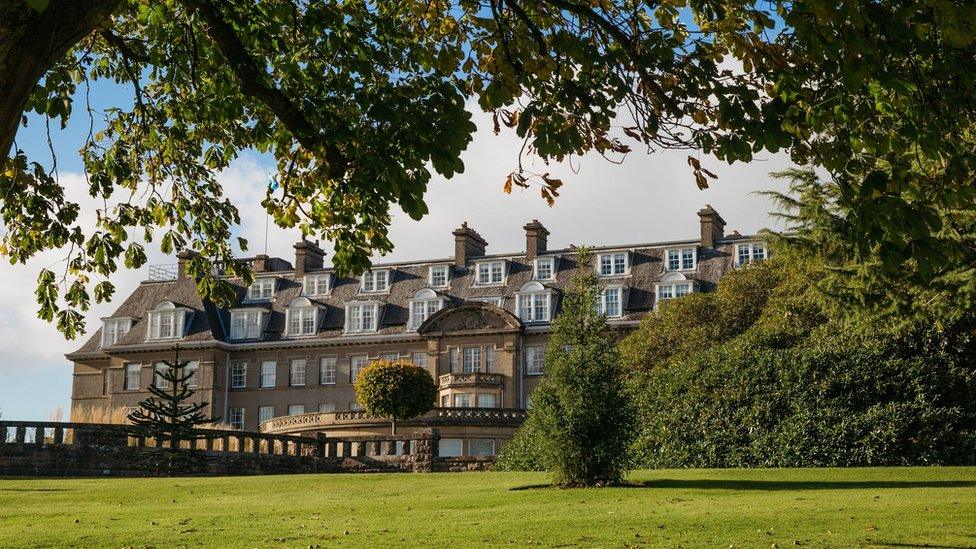
Gleneagles hotel last week announced it will close until 31 January
Of those who plan a trip in the early part of next year, they are holding off booking. The expectation is of free cancellation as standard.
Even before the latest tightening of restrictions, as the Scottish government last month told hotels they could only serve meals early, only to residents, and without alcohol, there was evidence of the way the public were turning away from travel.
Figures from a survey carried out last month by the Tourism Alliance showed a tenth responded to the Alliance survey saying they lost more than £50,000 in room reservations.
In October, half of the public surveyed said they intended to take a break during October, November and December. That fell to quarter when Scottish restrictions came in.
The evidence is that "intenders" were not following through. Older people have the time and money, but more reluctance to take a trip. More than half of all those surveyed across Britain said they would not visit a locked down area for two months after.
There was already declining confidence. Nearly half said they would not feel comfortable eating in a restaurant: a third said that of travelling in public transport.
With not much prospect of a return ticket to the pre-Covid travel world, the industry has been trying to discern a "new normal". It seems unlikely to spring back as quickly as hospitality and entertainments, when the shackles eventually come off.
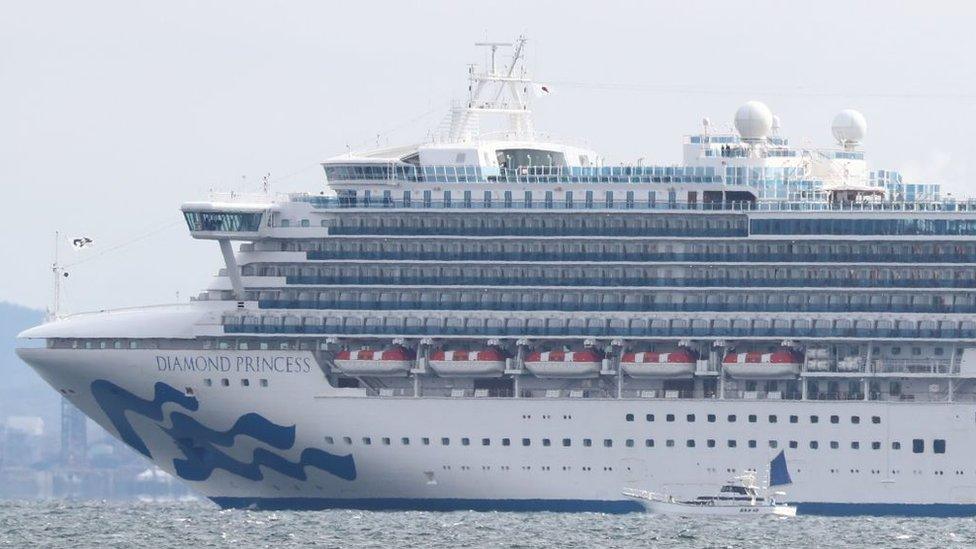
An outbreak of coronavirus on the Diamond Princess in Yokohama harbour in February was one of the first news stories about the pandemic that made headlines around the world
The World Travel Market usually meets in London in November, but did so virtually last week. The messages coming out of its conference is that business travel is going to take a big knock, now that people are so much more used to remote communications.
On the other hand, people now know they can work remotely, and can travel or live abroad while they work. So that opens up new opportunities beyond travel as holiday. The key will be building confidence, which is why that rapid turnaround of testing, at airports or just below you fly or after you arrive, is going to be vital.
One industry leader was saying that tourism must try to avoid being seen as either victim or villain, and instead more of a solution to the wider economic downturn.
The message from British travel agents: bookings are relatively good for the Caribbean and Indian Ocean. They omit to mention ski trips, so you can assume they're terrible.
Prices are low at the moment, but expect them to go up as confidence returns. Travel firms need to rebuild and they need margins.
The message was that cruise liners will be among the first to return, with infection control protocols on board. They were among the first to suffer from Covid-19, with a breakout on the Diamond Princess in Yokohama harbour. That seems a long time ago. It was in early February, six weeks ahead of Britain's first lockdown, and was among the first news stories about the pandemic that grabbed international attention.
The hope expressed at the World Travel Market was that a UK Foreign Office advisory against cruises will be lifted before long, and they can weigh anchor.
For me, for now, I'd make do with a trip into the Highlands, even in the November gloom.
- Published12 November 2020
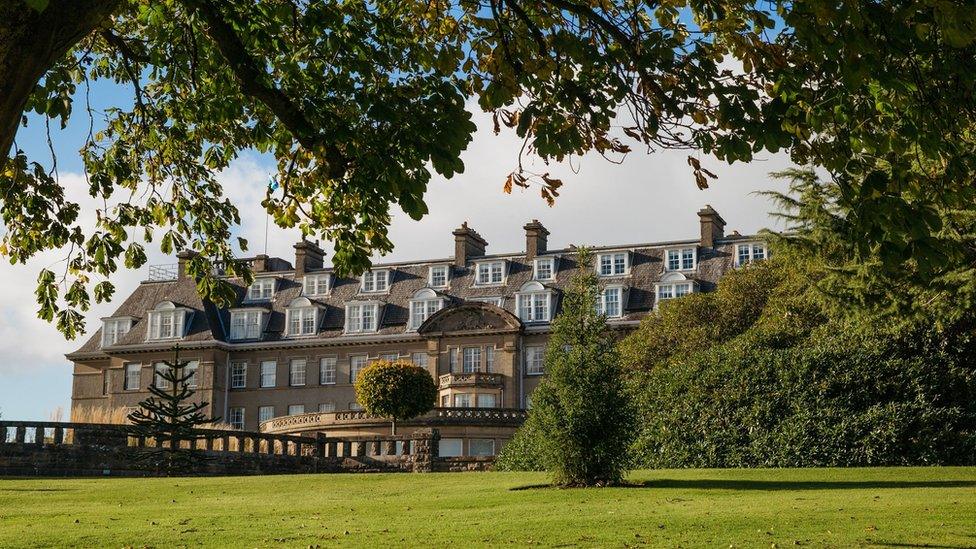
- Published12 November 2020
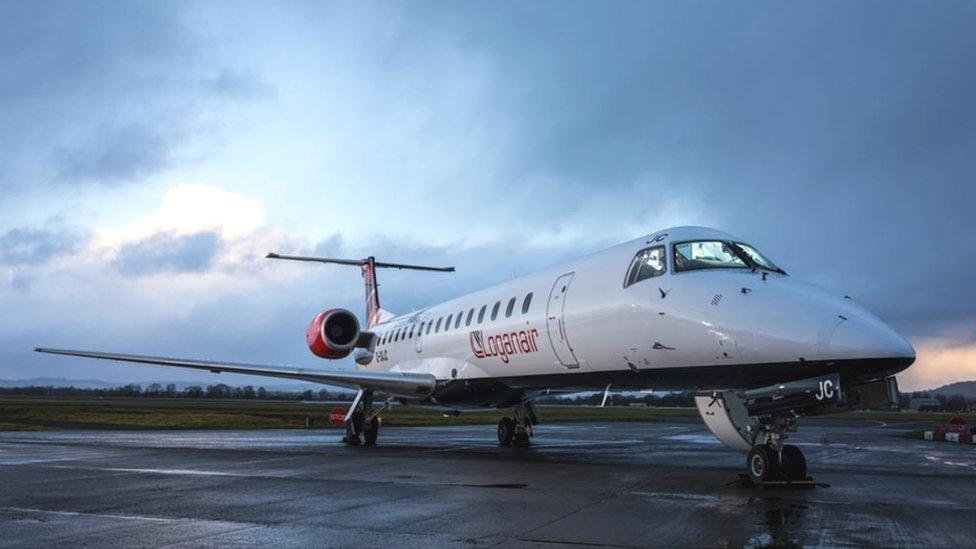
- Published28 October 2020
